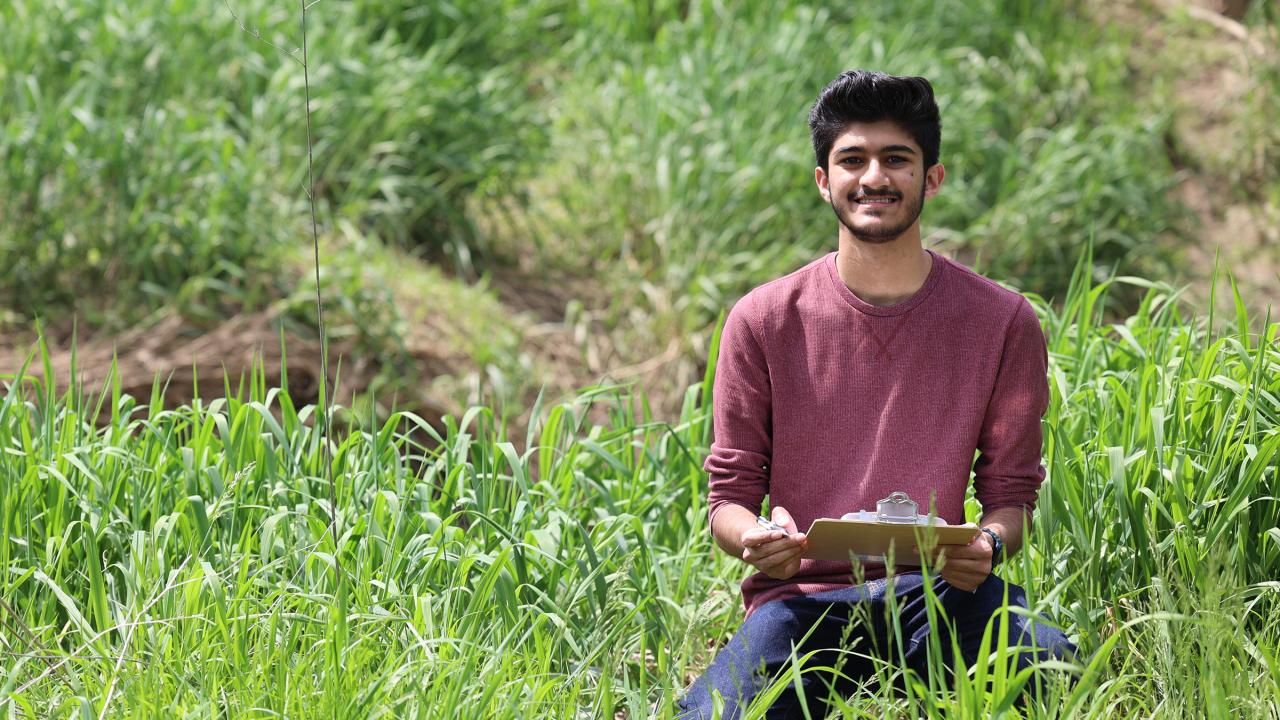Sophomore Waseq Mohammed likes the idea of constant motion. He knew when he started at Ohio State Lima that he would dig into undergraduate research to keep himself learning and growing as a student.
His first step was to find a professor and a then a topic he gelled with. Working with Dr. Robin Bagley on a population genetics study of blue-green wasp parasitoids brought back fond memories of combing through National Geographic and being fascinated by the interdependence among the species.
“Research is something I imagined myself doing but I first wanted to make sure that I actually found it interesting. The best way to get that is to jump in headfirst and get that exposure. That's why I wanted to join the lab as soon as I started going here.”
Waseq is currently a biology major and eventually plans to become a practicing physician. He is not ready to declare what his specialty will be, but he is currently very interested in hematology oncology or surgical oncology.
“There is so much research that happens in that field and there are so many cutting-edge techniques and treatment methods that are always coming out. If I am looking long-term, I want to make sure I do not get bored doing the same thing today. Some consistency is nice but I want to freshen things up just so I can keep growing and improving. So, I think that the idea of constantly moving, like new research happening and treatment methods, will keep me interested.”
While working on his research at Ohio State Lima, Waseq has been honing skills and habits that will continue to propel him forward from pattern recognition and data analysis to being able to recognize when he didn’t yet have enough information. Being able to ask the right questions has upped his creative game.
“If we do not ask good questions, it runs the risk of us becoming stagnant in the things we do and being very still in our life and I just do not like that. I want to keep improving over time and eventually try to become the best version of myself. I think asking good questions is one thing that you can do that really helps you move towards that.”
Waseq is excited that the work he has done with parasitic wasps will someday be the leaping off point for another undergraduate researcher.
“All the information I have looked at and the way I organized my spreadsheets with all my specimens could be of use to someone else down the line. Yes, we may not be partners, but it is work that could help them too.”
He has applied the same idea of building a base for others to use in the Each One Teaches One program where he serves as a mentor. His mentee for the year is an anthropology major, which piqued his interest as a major he initially knew little about.
“I like passing along lessons I have learned over time. I do not like it whenever people say, ‘Well I struggled with this, so you have to struggle with it,’” Waseq said. “I am in the mindset where if I struggled with something, I want to make sure you do not struggle with it, so you can move farther than me and struggle with something that I never had an opportunity to struggle with.”
One of the struggles he hopes to take away for his mentee is getting past the idea that “you are the only one.”
“Everyone has their own trials they are working through. Recognizing that and becoming open to the idea of asking for help is extremely important. Over the course of the past two years I have warmed up more to the idea that it is not just you and it is okay to rely on other people. It is completely fine to ask for help. What is good about this campus is that there are so many different avenues that you can do to ask for help and reach out.”
